He stopped. Garin's eyes said "yes." Lenoir smiled.
"I know the French criminal laws... You ask me whether I'm prepared to run the risk of having them applied to me? Yes, I am. Incidentally, I saw the famous German gas attack on 22nd April, 1915. A thick cloud arose out of the ground and crawled towards us in yellow-green waves, it was like a mirage, something worse than you ever saw in a nightmare. Thousands of men abandoned their arms and fled across the fields in unbearable horror. The cloud overtook them. Those who managed to get out of it had dark, blood-red faces, their tongues hanging out and their eyes seared... What nonsense 'moral concepts' are... Oh no, since the war we're no longer children."
"In a word," said Garin, mockingly, "you've come to the conclusion that bourgeois morality is one of the smartest of all juggling acts and only fools would swallow green gas in its defence. To tell you the truth I haven't thought much about such problems... All right... I voluntarily accept you as my partner. You will obey my instructions implicitly. There is only one condition..."
"All right, I agree to any conditions."
"You know, Victor, that I came to Paris on a false passport, every night I go to a different hotel. Sometimes I have to take a girl from the streets in order to avoid suspicion. Yesterday I found out that I was being followed. Some Russians have been entrusted with the job of tracking me. Apparently I'm mistaken for a Bolshevik agent. I must put the detectives on to a false scent."
"What do you want me to do?"
"Make up to resemble me. If you are caught you can show your papers. I want you to be my double. We're of the same height. You can dye your hair, glue on a false beard and we can buy similar clothes. Then tonight you will leave your hotel and go to another part of the town where you are not known—the Quartier Latin, for example. Is it a deal?"
Lenoir jumped down from the furnace and took a firm grasp of Garin's hand. Then he started explaining how he had succeeded in making the pyramids from a mixture of aluminium and ferric oxide (thermite) with heavy oil and yellow phosphorus.
He placed twelve of the little pyramids in the porcelain cups and lit them with the aid of a fuse cord. A pillar of blinding flame rose above the furnace. They had to retreat to the other end of the shed, to get away from the unbearable heat and light.
"Superb," exclaimed Garin. "I hope there is no smoke?"
"There is complete combustion at that terrific temperature. The materials are chemically pure."
"Good. In a day or two you will see miracles performed," said Garin. "Let's get some dinner. We'll send a messenger to the hotel for your things. Tonight we'll stay on the left bank. Tomorrow there'll be two Garins in Paris... Have you got a second key to this shed?"
In this city there was no stream of gleaming cars, there were no idle people twisting their necks to see everything displayed in the shop-windows, no dizzy women, and no industrial monarchs.
Here there were piles of freshly sawn timber, heaps of paving-stones, mounds of blue clay thrown up in the middle of the street, and sections of drain-pipe lying along the gutter like a huge worm cut into pieces.
Tarashkin of the Spartak Sports Club was making his way slowly to the club-house on the island. He was in the best possible spirits. Had you met him you might have thought him a bit glum-looking, for Tarashkin was serious and well-balanced, outwardly showing nothing of his mood, however good it might have been, with the possible exception of his soft whistling and care-free gait.
He was still about a hundred yards from the tram stop when he heard scuffling and squeaking between the piles of wooden blocks. Everything that went on in the city was, of course, Tarashkin's own personal concern.
He glanced over the pile and saw three small boys in bell-bottomed trousers and thick, short jackets; snorting angrily they were all three pounding away at a fourth boy, smaller than any of them, barefooted, bare-headed and wearing a wadded jacket torn and ragged to such a degree that one could only wonder how it held together. He was defending himself in silence. His thin face was scratched, his lips firmly set, and his hazel eyes glittering like those of a wolf-cub.
Tarashkin immediately picked up two of the boys by the scruff of their necks, gave the third one a kick in a soft spot so that he squealed and disappeared behind a pile of wooden blocks.
The other two, suspended in the air, began threatening him with awful things. Tarashkin just gave them a shake and they quietened down.
"Bullying again, you young hooligans," said Tarashkin, glancing at their dirty faces. "I'll teach you to hit kids smaller than yourselves! Don't let me catch you again. Get it?"
The boys were compelled to give him a positive answer to his question and muttered morosely:
"All right."
He let them go and they made off, hands in their pockets, telling the other boy what would happen if he fell into their hands again.
The boy they had been beating would also have run away but he was too weak, he just shifted from one foot to another and then with a faint moan sat down on the ground, his head disappearing in his ragged jacket.
Tarashkin bent over him. The boy was crying.
"Hi, you, where do you live?"
"Nowhere," answered the boy from under his jacket.
"What do you mean, nowhere? Have you got a mother?"
"No."
"And no father? I see."
Tarashkin stood there for a short time, wrinkling his nose. The boy buzzed under his jacket like a fly.
"D'you want something to eat?" asked Tarashkin gruffly.
"Yes."
"All right, come along to the club with me."
The boy tried to stand up but his legs would not support him. Tarashkin picked him up in his arms—the boy didn't weigh more than forty pounds—and carried him to the tram. They had a long way to go and when they changed trams Tarashkin bought a roll; the boy bit into it hungrily. The last bit of the journey they walked. As Tarashkin opened the gate of the club-house and let the boy in he said to him:
"See that you don't steal anything here."
"I won't, I only steal bread."
The boy looked sleepily at the sunbeams playing on the water and on the varnished sides of the boats, at the green and silver willow whose beauty was reflected in the river, at the two- and four-oared gigs and their muscular occupants. His thin face was tired and listless. Tarashkin had no sooner turned his back than he dived under the boardwalk that ran from the club-house to the landing-stage, curled up in a ball and, apparently, immediately dropped off to sleep.
In the evening Tarashkin pulled him out from under the boards, told him to wash his hands and face in the river, and took him in to supper. He sat the boy at the supper table with the club members.
"We can keep this boy at the club," Tarashkin told his fellow-clubmen. "He won't eat much and we can get him used to the water; in any case, we need a smart boy about the place."
The others agreed to let him stay. The boy listened calmly to this conversation and ate with dignity. After supper he left the table without speaking. Nothing astonished him— he had seen stranger things.
Tarashkin led him out to the landing-stage, sat down beside him, and began to talk.
"What's your name?"
"Ivan."
"Where did you come from?"
"From Siberia. From the Amur, from the upper reaches."
"Long since you left there?"
"I arrived yesterday."
"How did you get here?"
"Part of the way I walked, part of it I rode on the brake-beams of trains."
"What did you want to get to Leningrad for?"
"That's my business," answered the boy and turned away, "I've come here because I had to."
Читать дальше
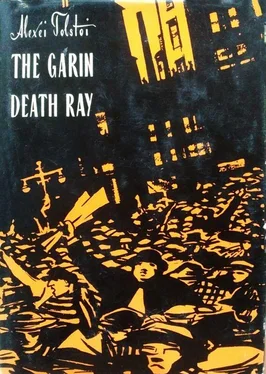
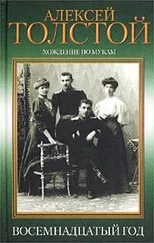

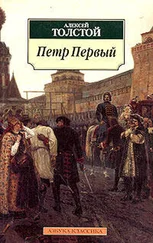
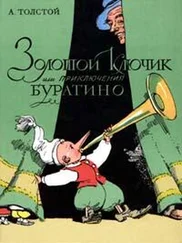
![Алексей Николаевич Толстой - Хождение по мукам [litres]](/books/26263/aleksej-nikolaevich-tolstoj-hozhdenie-po-mukam-litr-thumb.webp)
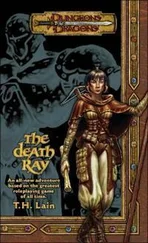

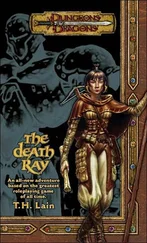


![Алексей Николаевич Толстой - Гиперболоид инженера Гарина. Аэлита [Художник Г. Зубковский]](/books/423486/aleksej-nikolaevich-tolstoj-giperboloid-inzhenera-ga-thumb.webp)
